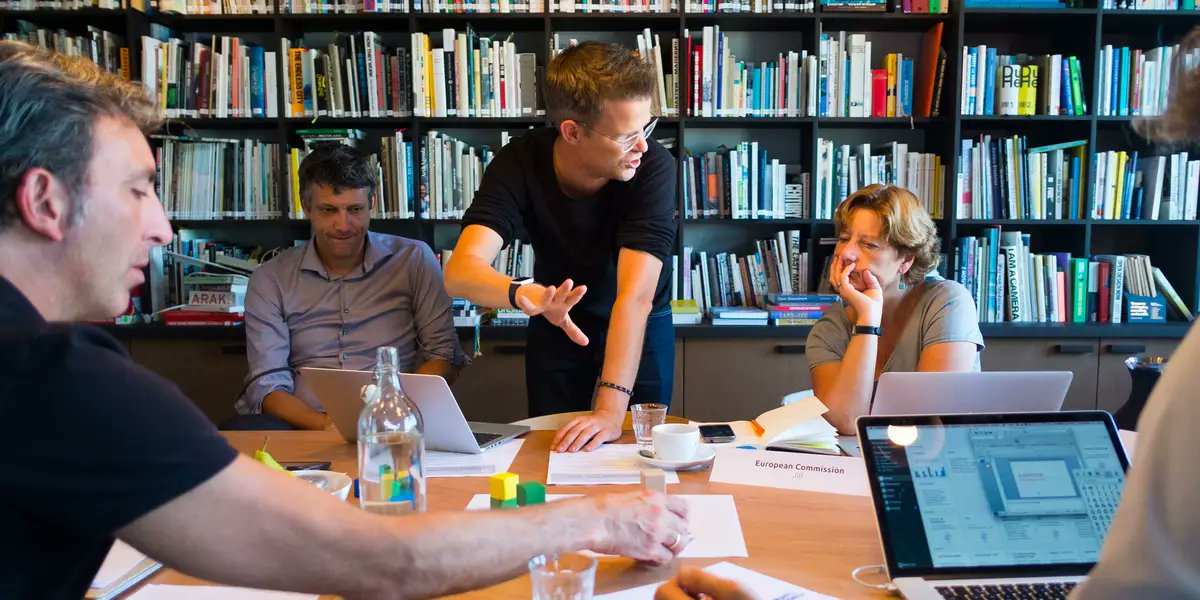
A reader who received an advance copy of THE EXTENDED MIND just told me that he used this technique, described in the book, to get three colleagues on the same page in a meeting: 

"Researchers recommend that we implement a specific sequence of actions in response to our teammates’ contributions: we should ACKNOWLEDGE, REPEAT, REPHRASE, AND ELABORATE ON what other group members say.
"Studies show that engaging in this kind of communication elicits more complete and comprehensive information.
It re-exposes the entire group to the information that was shared initially, improving group members’ understanding of and memory for that information.
It re-exposes the entire group to the information that was shared initially, improving group members’ understanding of and memory for that information.
"And it increases the accuracy of the information that is shared, a process that psychologists call 'error pruning.'
Although it may seem cumbersome or redundant, research suggests that this kind of enhanced communication is part of what makes EXPERT teamwork so effective.
Although it may seem cumbersome or redundant, research suggests that this kind of enhanced communication is part of what makes EXPERT teamwork so effective.
"A study of airplane pilots, for example, found that experienced aviators regularly repeated, restated, and elaborated on what their fellow pilots said, while novice pilots failed to do so—
—and as a result, the less experienced pilots formed sparser and less accurate memories of their time in the air."
This simple procedure can increase a team's "collective intelligence"—their capacity to engage in intelligent thought as a group.
amazon.com/Thinking-Outsi…
This simple procedure can increase a team's "collective intelligence"—their capacity to engage in intelligent thought as a group.
amazon.com/Thinking-Outsi…
I also wonder if this practice could serve to make more equitable the way credit for good ideas is distributed.
From an (old) Washington Post article:
"When President Obama took office, two-thirds of his top aides were men.
From an (old) Washington Post article:
"When President Obama took office, two-thirds of his top aides were men.
"Women complained of having to elbow their way into important meetings. And when they got in, their voices were sometimes ignored.
So female staffers adopted a meeting strategy they called 'amplification': When a woman made a key point, other women would repeat it,
So female staffers adopted a meeting strategy they called 'amplification': When a woman made a key point, other women would repeat it,
giving credit to its author. This forced the men in the room to recognize the contribution — and denied them the chance to claim the idea as their own.
'We just started doing it, and made a purpose of doing it. It was an everyday thing,' said one former Obama aide.
'We just started doing it, and made a purpose of doing it. It was an everyday thing,' said one former Obama aide.
"Obama noticed, she and others said, and began calling more often on women and junior aides.”
washingtonpost.com/news/powerpost…
washingtonpost.com/news/powerpost…
On Facebook, reader Ian Todd Stark adds: "Rephrasing what people said for the sake of shared memory is so valuable, but it definitely annoys people under some conditions."
"Some people are very focused on moving forward with a train of thought and this practice can feel very extraneous to them and create frustration that derails things."
"Two ways I’ve dealt with that: (1) develop higher level of sensitivity to when and how this is applied, treating it as a skill rather than a technique, and (2) establish a social norm for the participants so that they expect this and understand the purpose of it."
• • •
Missing some Tweet in this thread? You can try to
force a refresh








